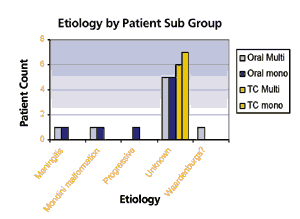
|
As I read contributing writer Renee DiIulio’s cover story on cochlear implants in this issue, I was shocked by a couple of points brought up in the article.
One is that only a handful of clinics in the country perform cochlear implant procedures. While statistics related to cochlear implants vary, according to FDA data from 2005, approximately 100,000 people worldwide had received cochlear implants at that time. The National Institute on Deafness and Other Communication Disorders, however, estimates that about 250,000 people in the United States would be “good candidates” for implants. But with perhaps only about 350 clinics in the country performing cochlear implant procedures, according to a representative of Cochlear Americas, there are obviously not enough facilities to address those potential needs.
Another point of concern is that research shows that many patients are unaware of the benefits of cochlear implants. Is it because there is not enough information being dispensed about the devices? Or are hearing health care professionals not discussing cochlear implants with their patients as options for their hearing loss? Or worse, are hearing health care professionals themselves not informed enough about the devices and the benefits they can provide?
While not every hearing health care professional has to specialize in cochlear implants, each one does have to be able to provide as much information as possible to their patients who are diagnosed with hearing loss. After being diagnosed with a hearing loss, patients should be educated on all of the options available to them. While hearing aids will be the best choice—either by want or need—for certain patients, others might prefer or be more suited for cochlear implants.
If they can’t rely on the hearing health care professional who diagnosed their hearing loss for information on cochlear implants, who should they turn to instead?
Beyond diagnosing a hearing loss, it falls to the hearing health care professional to be an advocate and educator for the field and all that encompasses to ensure that patients receive the information they need to make the most-informed health care decisions.
I’m curious to know how many of you discuss cochlear implants with your patients as an option for their hearing loss. Let me know by casting your vote on our latest Web poll, which asks that very question, on our homepage.

Danielle Cohen
[email protected]





